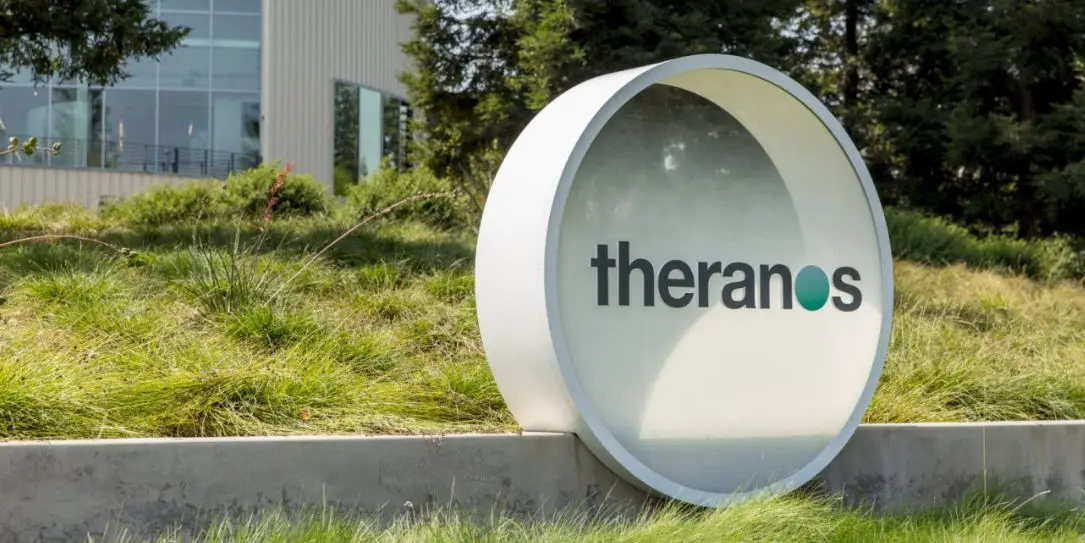The past decade has seen some remarkable strides in medical technology (Medtech). Not every headline-making tech startup you see on the news turns out to be something life-changing, though. Theranos was a company that promised the future but delivered nothing. Nothing but federal wire fraud, anyway.
If you kept up with Silicon Valley news in the mid-to-late-2010s, you’ve probably heard of Theranos before. For a time, it looked like the company was going to change Medtech forever. After a handful of investigations, though, it became clear the only thing that would come from the brand was a news story for the ages.
Theranos’s Origins
Theranos’s beginnings sound like what you’d expect of a Silicon Valley success story. Stanford dropout Elizabeth Holmes founded the company in 2003 at just nineteen years old. Working out of a basement, Holmes began to start what she believed would be the next big thing in Medtech.
Holmes wanted to go into medicine but found she had a fear of needles. This phobia turned into a point of inspiration for Theranos, which claimed to offer revolutionary blood-testing technology. Theranos’s devices would offer a cheaper, faster, and more accurate way to gather and analyze patients’ blood.
Within a year, Theranos raised almost $7 million in funding. By 2007, they had gathered another $43.2 million from investors. When Holmes introduced the company to the public, it was already worth more than $1 billion.
Lofty Promises
When you consider everything Theranos claimed to offer, it’s no wonder it attracted so many investors. At the heart of the company was a proprietary technology that could analyze blood from a prick of your finger. Convenience and comfort weren’t the only supposed advantages of these devices either.
Holmes claimed that with just a few drops of blood, the technology could reveal a wealth of health information. They would be able to detect things like high cholesterol, blood sugar levels, and even the presence of cancer. Labs can tell all of these things from blood samples, but with several machines and a longer timeframe.
Theranos said their “nanotainers” would show results within mere minutes. Not just that, but they’d be more affordable than traditional testing methods too. If that sounds a little too good to be true, you’re right.
A Culture of Secrecy
One of the earliest red flags with Theranos was Holmes’s insistence on complete secrecy. Holmes wore her inspiration on her sleeve, mimicking Apple’s Steve Jobs down to his iconic black turtlenecks. She also borrowed the tech titan’s policy on keeping developing technology behind closed doors and exaggerated it to the max.
Holmes never talked about how her company’s technology worked. She also accepted all investments with the condition that she wouldn’t have to tell investors how it all worked. Three former employees even found themselves in legal trouble, having allegedly revealed some of Theranos’s secrets.
Anyone who visited Theranos had to sign a non-disclosure agreement before entering. Security guards would escort guests everywhere they went in the building, even to restrooms. As you might’ve guessed, all of this secrecy raised some suspicion.

Investigations Begin
In October of 2015, Wall Street Journal reporter John Carreyrou started publishing investigative pieces over Theranos. He found that the company had been running most of its tests on traditional lab equipment, not their own devices. His articles marked the beginning of the end for Theranos, as more investigations followed.
Later that month, the FDA released two reports accusing Theranos of mismanagement and failing to meet government standards. The Centers for Medicare and Medicaid Services (CMS) also investigated the company, releasing its findings in January 2016. Around this time, the Securities and Exchange Commission (SEC) began investigating Theranos too.
In the coming years, Theranos settled lawsuits with the CMS, the Arizona Attorney General, and some of its investors. Companies were beginning to lose trust in the startup as more information about the scandal emerged.
The End of Theranos
On March 14, 2018, the SEC pressed charges against Theranos, Holmes, and Ramesh Balwani, the company’s one-time president. The Commission accused the three of massive fraud, resulting in a $500,000 fine and Holmes returning 18.9 million shares of Theranos stock. A few months later, Holmes stepped down as CEO of the company.
The same day that Holmes stepped down, a federal grand jury charged her and Balwani. The charges amounted to nine counts of wire fraud and two counts of conspiracy to commit wire fraud. Theranos shut down entirely in the following September.
Fraud may be more common than you think. Some experts estimate that as much as 20% of federal spending is lost to fraud. Despite that, the Theranos case remains one of the most significant instances of fraud in startup history.
Ongoing Legal Action
You still have a chance to follow the fate of Theranos and its former leaders. Initially set for July 28 of 2020, the trial has moved to October 27 because of public health concerns. It could be even longer until the trial begins, too, depending on how long the coronavirus pandemic lasts.
The defense has pushed for a 2021 trial date, while prosecutors insist on keeping the October date. The sides of the trial will reconvene in July to determine if further postponement is needed or not. Until then, you’ll have to keep your ear out for any new updates.
If found guilty, Holmes and Balwani could face millions of dollars in fines and up to 20 years in jail. What started as one of the most promising-looking startups in Medtech turned into the industry’s biggest scandal.
Too Good to Be True
You’ve probably heard it said that if it’s too good to be true, it is. That’s certainly the case with Theranos, which first appeared to be the answer to a host of Medtech’s problems. In the end, though, it turned out to be a lie.
Elizabeth Holmes was once the youngest female self-made billionaire in the world. You know her now as one of the youngest billion-dollar fraudsters. Next time you see something promising the future, take it with a grain of salt.
What do you think about Theranos? Let us know in the comments below or on Twitter, or Facebook. You can also comment on our MeWe page by joining the MeWe social network.
Last Updated on November 27, 2021.










